Regional international groups for UPSC
Regional International organizations play a crucial role in economic integration, security cooperation, and diplomatic engagement. However, they face challenges like geopolitical conflicts, economic inequalities, and external influences. For UPSC aspirants, a strong understanding of these organizations is essential for international relations, India’s foreign policy, and economic cooperation. Aspirants should follow recent developments, especially in India’s regional diplomacy and trade partnerships.
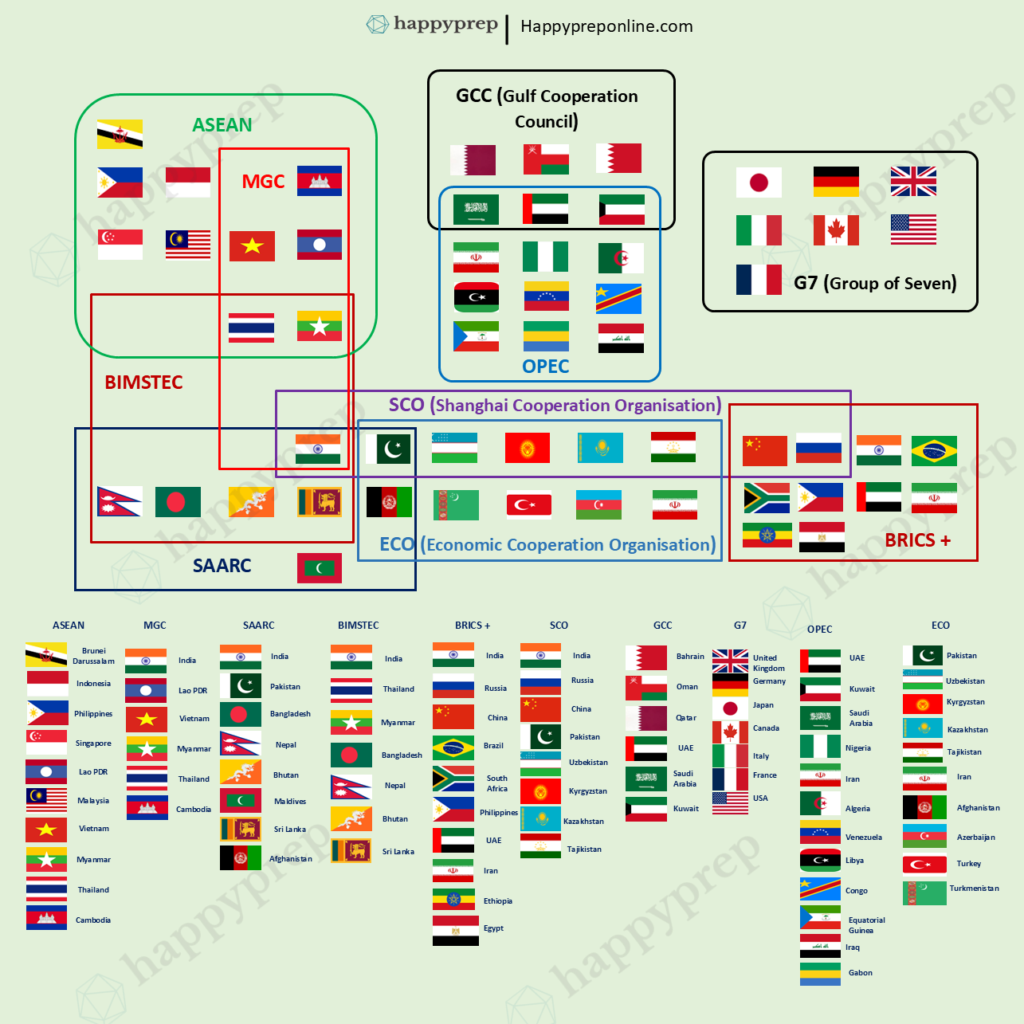
Importance of Regional International Groups
- Economic Cooperation – These groups facilitate trade liberalization, economic integration, and investment flows. For instance, the EU’s single market allows the free movement of goods, services, and labor, significantly boosting economic growth.
- Political Stability & Conflict Resolution – Organizations like ASEAN and the African Union work towards preventing regional conflicts and promoting diplomacy. ASEAN played a significant role in stabilizing relations among Southeast Asian nations.
- Cultural and Social Integration – Many regional groups foster cultural and educational exchanges, strengthening people-to-people ties. SAARC, for example, promotes cultural festivals and student exchange programs to enhance regional unity.
- Collective Security & Defense Cooperation – Organizations such as the North Atlantic Treaty Organization (NATO) ensure collective defense against external threats. Similarly, regional groups in Africa and Latin America coordinate efforts against terrorism and organized crime.
- Environmental and Climate Action – Several regional organizations work together to tackle climate change. The Arctic Council focuses on environmental protection, while ASEAN promotes sustainable development projects.
Challenges faced by Regional International Groups
- Political Conflicts & Rivalries – SAARC has been ineffective due to India-Pakistan tensions, limiting regional cooperation. Similarly, territorial disputes in ASEAN hinder unity.
- Economic Disparities – Many developing countries within regional groups struggle with income inequality and economic dependency.
- External Influences & Geopolitics – Superpower rivalries, such as China’s growing influence in ASEAN and Africa, complicate decision-making within these groups.
- Bureaucratic Hurdles & Slow Implementation – SAARC agreements often face delays due to lack of consensus.
- Security Threats & Terrorism – Many regional organizations struggle with border security, cyber threats, and terrorism
As global dynamics evolve, the role of regional groupings will continue to shape the international order, making them an essential topic of study.
Important Regional International Groups
Bay of Bengal Initiative for Multi-Sectoral Technical and Economic Cooperation (BIMSTEC)
Organization of the Petroleum Exporting Countries (OPEC)
Mekong Ganga Cooperation (MGC)
Gulf Cooperation Council (GCC)
Economic Cooperation Organization (ECO)
- G7
Want to read some more articles?
-
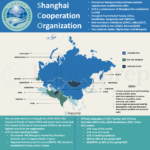 Shanghai Cooperation Organization (SCO): Origin, Members, Facts, etc for UPSC and other exams
Shanghai Cooperation Organization (SCO): Origin, Members, Facts, etc for UPSC and other exams -
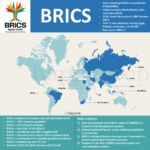 BRICS: Origin, members and others for UPSC, PSC & other exams
BRICS: Origin, members and others for UPSC, PSC & other exams -
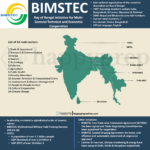 BIMSTEC for UPSC: Origin, Members & More
BIMSTEC for UPSC: Origin, Members & More -
 General Science for Competitive exams: UPSC, PSC, APFC, EO-AO, SSC, etc
General Science for Competitive exams: UPSC, PSC, APFC, EO-AO, SSC, etc -
 THE TRADE UNIONS ACT, 1926 for UPSC EPFO APFC/EO-AO, ALC, and Other exams
THE TRADE UNIONS ACT, 1926 for UPSC EPFO APFC/EO-AO, ALC, and Other exams -
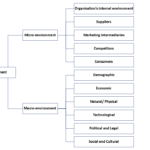 Understanding Macroenvironment: Marketing Environment in Principles of Marketing
Understanding Macroenvironment: Marketing Environment in Principles of Marketing -
 Understanding Microenvironment: Marketing Environment in Principles of Marketing
Understanding Microenvironment: Marketing Environment in Principles of Marketing -
Interjections in English
-
Conjunctions in English
Recruitment notifications update!
-
Recruitment 2025: Recruitment for Teaching Staff in The School of Planning and Architecture, New Delhi - Vacancy, Posts, Grade Pay, etc
-
Recruitment 2025: Vacancies in Inter-University Centre for Astronomy and Astrophysics (IUCAA)
-
Recruitment 2025: Recruitment on Deputation basis in National Anti Doping Agency (NADA)
-
Recruitment 2025: Various vacancies in Artificial Limbs Manufacturing Corporation of India (ALIMCO)
-
Recruitment 2025: Various vacancies in Land Ports Authority of India
Copyright© 2024 | All rights reserved | Made in India